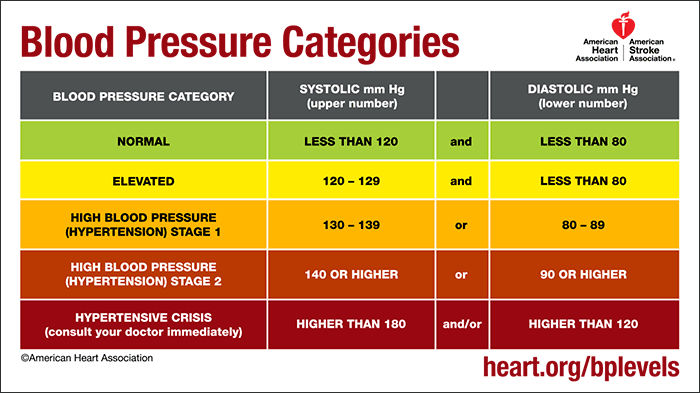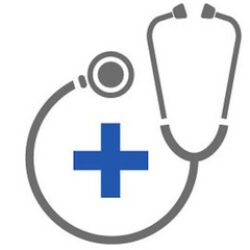Hypertension is a chronic medical condition where the blood pressure in the arteries is elevated above normal ranges. There are two portions of a blood pressure reading: the top number represents the systolic number (the heart is contracting, systole), and the bottom number represents the diastolic number (the heart is relaxed between beats, diastole). Normal ranges for an adult reading is in the range of 100-140mmHG systolic and 60-90mmHG diastolic. High blood pressure is often diagnosed when readings exceed 140/90 over multiple measurements over time.
Hypertension is a diagnosis where a patient has a chronic elevated blood pressure of the arteries, which makes the heart muscle work harder than normal. While blood pressure changes with activity, mood, etc., it is measured by when the heart is contracting (systole) or relaxing between beats (diastolic). While there are various normal accepted blood pressures, and even variable norms for different patients that can change based on age, racial group, and size of patient. It is also generally accepted that high blood pressure is present when a patient continually has a reading of 140/90 mmHg or above. Hypertension can be primary meaning that it is not due to other diagnosis, or secondary meaning that it is a result of some other related diagnosis.

Symptoms of High Blood Pressure:
- Severe headache.
- Fatigue or confusion.
- Vision problems.
- Chest pain.
- Difficulty breathing.
- Irregular heartbeat.
- Blood in the urine.
- Pounding in your chest, neck, or ears.
Untreated High Blood Pressure: Hypertension as a diagnosis is serious. Hypertension can lead to other complications such as vision problems, stroke, heart attack (MI), heart failure, peripheral arterial disease (PAD) and is very often the major cause of CKD (chronic kidney disease) and kidney failure.
References:
https://www.heart.org/en/health-topics/high-blood-pressure/understanding-blood-pressure-readings
Brian holds a Master degree in Health Administration (MHA), a Bachelor of Science in Health Sciences (BSHS), and a Certificate in Clinical Bioethics which bestows the ability to serve on ethics boards, help make healthcare decisions, and provide continuing medical education.
He is a national author and speaker and health consultant in all aspects of healthcare delivery, with special interests in risk adjustment, population health, public health, clinical bioethics, patient safety, and patient education.
*All posts and materials posted here are for education and demonstration purposes and are not intended to be medical advice. It is important to remember that every person is unique with unique diagnoses, and may be taking different prescriptions and supplements. I encourage each person to discuss your conditions with a trusted healthcare provider and be engaged to learn along your individual path to wellness.


